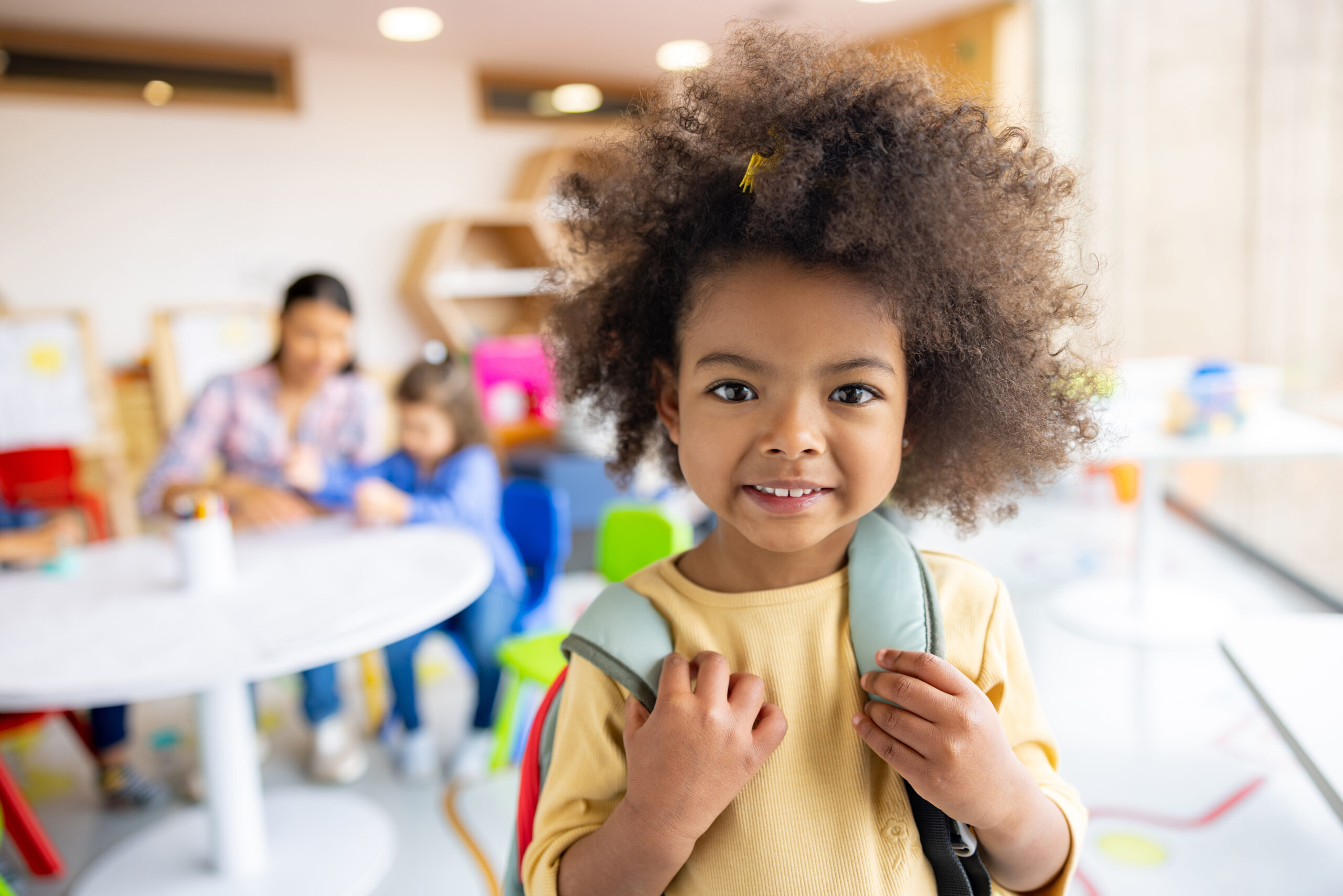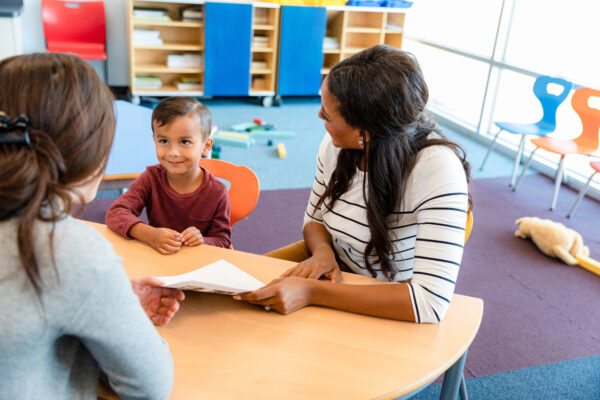 For youngsters entering kindergarten, the unexpected can be both exciting and scary. Kids may be looking forward to meeting new friends, learning to read or riding the bus for the first time, but it’s a big step and not knowing what to expect can cause anxiety.
For youngsters entering kindergarten, the unexpected can be both exciting and scary. Kids may be looking forward to meeting new friends, learning to read or riding the bus for the first time, but it’s a big step and not knowing what to expect can cause anxiety.
“It’s perfectly natural for kids to worry about heading off to kindergarten,” said Alex Miksit, MD, a pediatrician at Akron Children’s Warren and Liberty primary care locations. “Much of a child’s nervousness for kindergarten can come from the unpredictability of this change, like a new building, new teacher and new schedule.”
While you don’t need to drill your children with letters and numbers, there are a few things you can do to better prepare them for kindergarten. Follow Dr. Miksit’s 7 tips for a smoother transition and successful launch to their first official year of school.
Develop a predictable routine and stick to it.
Create a morning routine now that is consistent with what your child will experience once kindergarten starts. Routines are comforting and reduce stress because they help children know what to expect daily. If the school provides a daily schedule of activities ahead of time, you also can go over that with your child so she’ll know things like what she’ll learn, when she’ll eat lunch and when the bus comes.
Visit the school ahead of time.
Open houses are a great opportunity to meet the teacher, walk the halls and see the classroom. Be sure to point out important areas that are often overlooked, such as the school office and bathroom. It’s much easier to relax when your child can visualize what to expect.
“Even if your child’s new school doesn’t have a formal tour, you can still drive by or even visit the playground to get your child excited about the new school,” Dr. Miksit said. “In the weeks leading up to the first day, talk about the school often and point out positive aspects your child can expect.”
Read books about kindergarten.
Grab a book and read to your child about starting kindergarten. Not only does it encourage family reading time, but books also can be helpful to illustrate what’s going to happen.
Books, such as “The Night Before Kindergarten” or “Kindergarten, Here I Come,” also offer the opportunity to ask your child questions about how she’s feeling. Is your child nervous? Afraid? What is she most excited about? Normalize your child’s worries by letting her know it’s OK to feel nervous, but that she’ll start to feel better with each day she’s there.

Open houses are a great way to meet the teacher and see the classroom. But if your child’s school doesn’t offer one, visit the playground to help get your child excited about school and potentially meet new classmates.
Try role playing possible scenarios at school.
During playtime, pretend with your child her stuffed animals are starting kindergarten and show how the stuffed animals deal with worries successfully. Act out ways to meet new friends, how to find someone at recess or what to do if she can’t find her classroom.
In addition, if you know another child entering kindergarten or riding the same bus, set up a playdate for your child to get to know that child better. That way, your child will have a familiar face on her first day.
Be a positive influence.
Kids absorb our attitudes—good or bad—and often mimic our behavior. Talking to your kids about the kindergarten transition in a positive way will help make them more comfortable.
It’s natural to have your own worries about the transition. Just be sure you don’t express them in front of your child. Instead, talk to your partner or a close friend about them. Kids can pick up on your anxiety and make their own worries worse.
Get kids involved.
Just as morning routines are important, so too is a bedtime routine. Ask your child to pick out her outfit and help you pack her bookbag, snack and lunch the night before. Allowing your child to participate can help her get excited for the first day.
Make sure your child gets a good night’s rest. If they’re tired and grumpy, it can worsen anxiety and make saying goodbye even harder.
Make goodbyes short and sweet.
On your child’s first day, make your goodbye short and sweet. Otherwise, it can drag out your child’s anxiety, too. Even if your goodbye includes 5 kisses, extra hugs and a high five, once the ritual is over, it’s over.
“The biggest mistake parents make is going back again after they’ve already said goodbye,” said Dr. Miksit. “Warn your child ahead of time what the goodbye will look like and stick to your guns. Continuing to come back will only make things worse.”
During the kindergarten transition, give your child grace even if it takes a little longer than expected for your child to get comfortable.
“If you find your child is not adjusting well after a few weeks, talk to the teacher to find out any potential problem areas,” said Dr. Miksit. “If your child continues to struggle, talk with a pediatrician. Teachers and pediatricians are your child’s biggest advocates and have supported many families in similar situations. Together, you can build a plan to help ease your child’s struggles.”
You can schedule a visit with one of our pediatricians in MyChart or by calling our appointment line at 330-543-2778. Virtual Visits are available.










